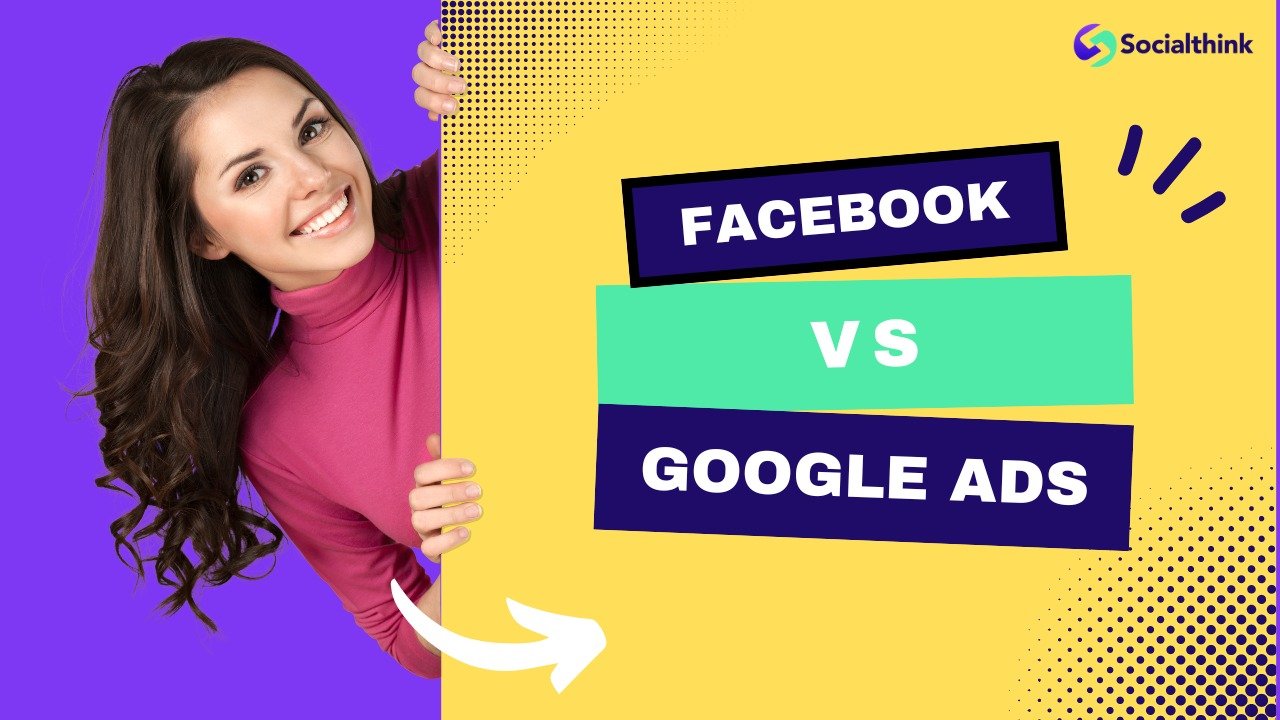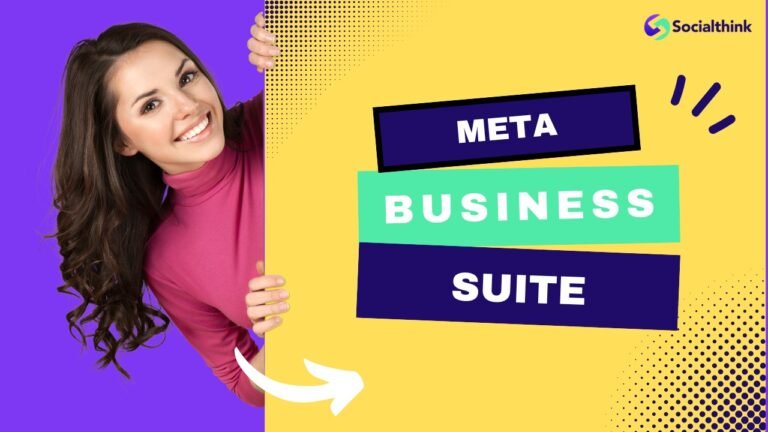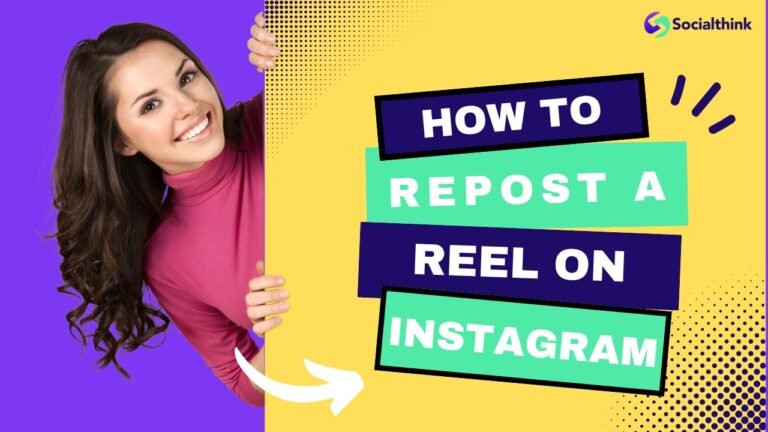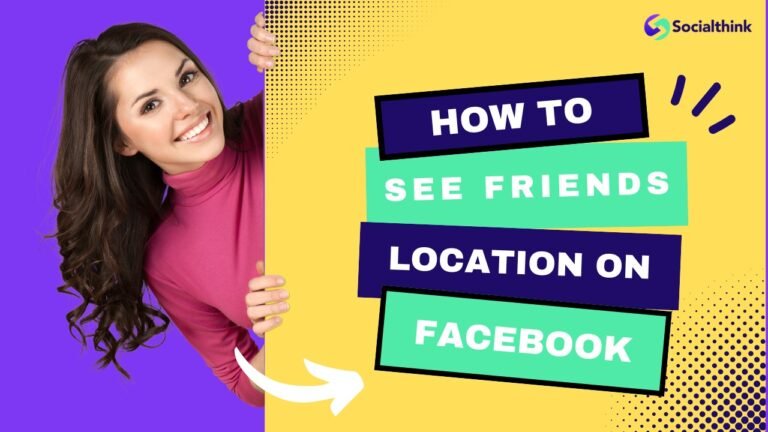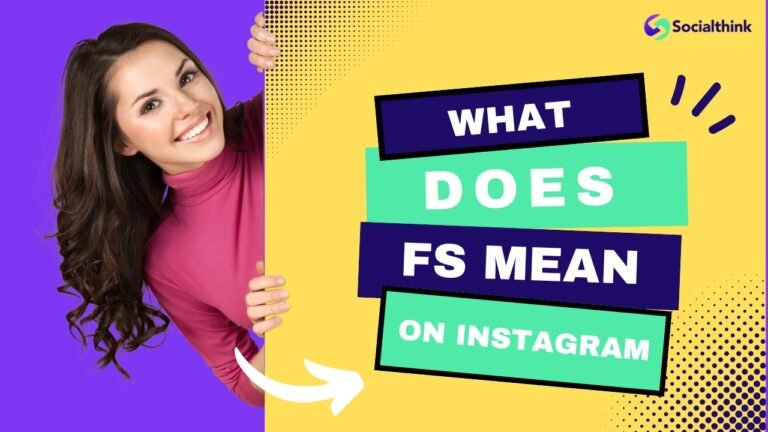Facebook vs Google Ads: Selecting the Best Platform
When it comes to digital advertising, the two 800-pound gorillas are undoubtedly Facebook Ads and Google Ads.
As a social media strategy and analytics company, Social Think often gets asked by our clients which platform they should focus their ad budget on for maximum ROI and business results. The answer is – it depends on your specific goals, audience, and industry.
In this article, we’ll dive into the key similarities and differences between these two powerhouse ad platforms.
By the end, you’ll have a clearer understanding of how Facebook Ads and Google Ads work, the pros and cons of each, performance benchmarks to measure against, and when to deploy each one in your digital marketing mix. Let’s jump in.
How Facebook & Google’s Advertising Platforms Work?
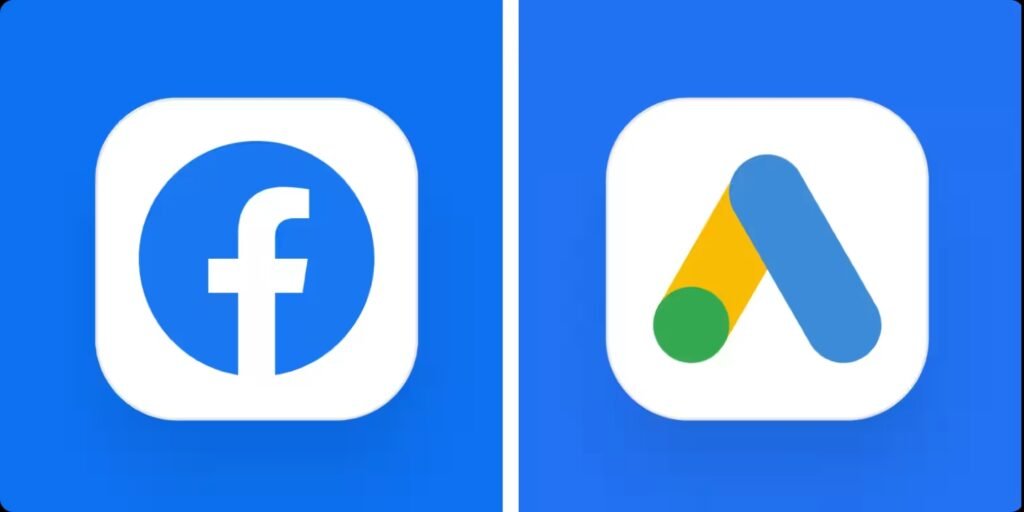
How Facebook Ads Work?
With over 2.9 billion monthly active users, Facebook provides incredible reach and granular targeting options for advertisers. Facebook Ads appear seamlessly in users’ news feeds, stories, in-stream videos, Messenger inbox, and across Facebook’s Audience Network of partner apps.
The real power of Facebook advertising lies in its unparalleled targeting capabilities. You can target ads based on demographics, interests, behaviors, life events, and job titles, and create lookalike audiences that match your best customers. This allows you to get your message in front of the right people at the right time, utilizing demographic information to reach your desired audience through text ads, image ads, and compelling video ads.
How Google Ads Work?
Google Search engine processes over 8.5 billion searches per day, making it prime real estate for advertisers to reach potential customers. Google Ads, formerly known as Google AdWords, is a PPC advertising (Pay Per Click advertising) platform.
Advertisers bid on specific keywords relevant to their business, and their text ads show up in Google search results, on Google Maps, Google Shopping, YouTube, and across Google’s Display Network of over 2 million websites.
Since Google Ads operates on a PPC platform model, you only pay when someone clicks your ad. This makes it a highly cost-effective way to drive qualified traffic, as you’re reaching people actively searching for what you offer.
Your ad’s placement depends on your maximum bid and Quality Score, which factors in your ad’s relevance and landing page experience.
With its heavy reliance on keyword targeting, Google Ads is a powerful platform for businesses aiming to target specific search queries through Google advertising.
Facebook Vs Google Ads: Similarities and Differences
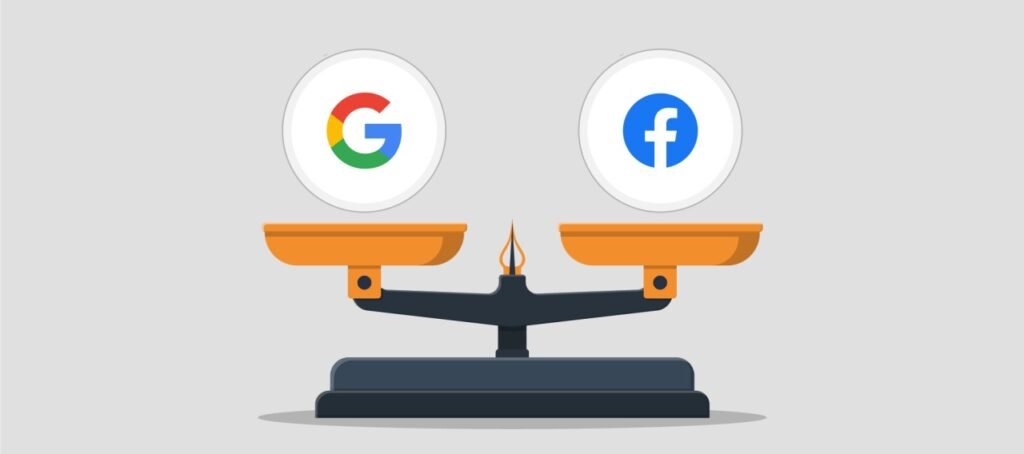
Reach
Both Facebook and Google have enormous reach. Facebook has 2.9 billion monthly active users, while Google Display Network reaches over 90% of internet users worldwide. However, Facebook’s reach is confined to its platforms, while Google can get your ads in front of people across millions of websites.
Targeting Options
Facebook offers unmatched audience targeting based on interests, behaviors, life events, and more. Google primarily targets based on keywords and search intent, though it does offer demographic and in-market audience targeting.
Platforms
Facebook Ads appear on Facebook, Instagram, Messenger, and the Audience Network. Google Ads can show up in search results, on YouTube, in mobile apps, and across millions of partner websites on the Display Network.
Ad Formats
Facebook offers a variety of engaging ad formats like single images, videos, carousel ads, collections, and Instant Experiences. Google’s main ad types are text-based search ads, shopping ads, app promotion ads, and display ads in various sizes.
Buyer Intent
People on Google are actively searching for specific products or information, so the intent is much higher. Most Facebook users are not in a “buying” mindset but can be swayed by a compelling ad.
Cost
Facebook Ads tend to be cheaper, with an average cost-per-click (CPC) of $0.97. The average CPC for Google Ads is $2.69 on the search network and $0.63 on the display network.
Conversion Rate
The average conversion rate for Facebook Ads across all industries is 9.21%. Google search ads convert at 4.40% on average, while Google display ads convert at 0.57%.
However, conversion rates vary widely by industry and campaign objective.
Customer Service
Both platforms offer customer support through online documentation, courses, and online chat/email support. However, Google is known to be more responsive and helpful in resolving issues.
Tracking & Analytics
Facebook’s Ads Manager provides robust performance data, and audience insights, and can track conversions with the Meta Pixel. Google Ads integrates with Google Analytics for detailed conversion tracking, attribution, and remarketing capabilities.
Performance Metrics: Clicks, Conversions, and ROI
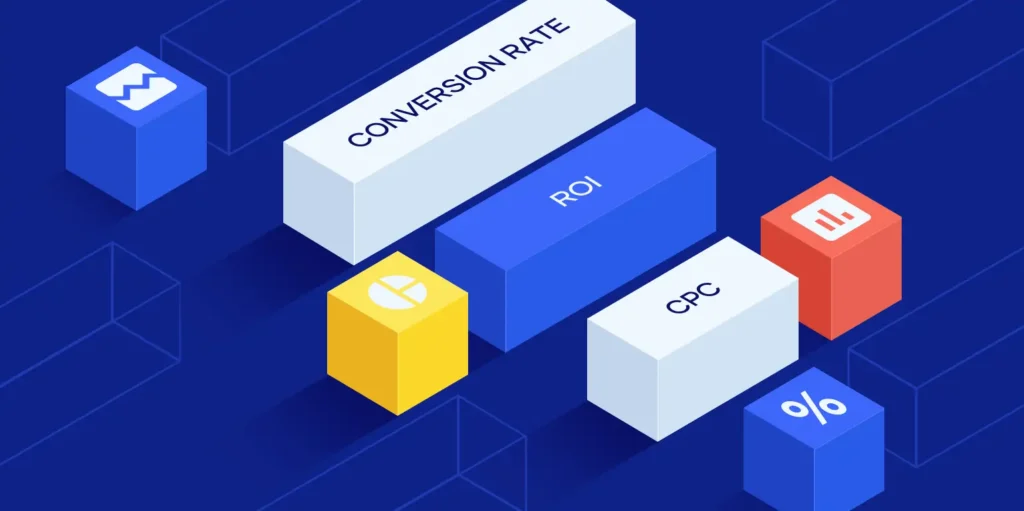
Measuring Success With Facebook Ads
The key metrics to track for Facebook Ads are:
- Reach: The number of people who saw your ads at least once
- Impressions: The total number of times your ads were viewed
- Click-through rate (CTR): Percentage of people who saw your ad and clicked on it
- Cost-per-click (CPC): The average cost for each click on your ad
- Conversion rate: Percentage of clicks that resulted in a desired action on your website
- Return on ad spend (ROAS): Revenue generated for every dollar spent on ads
A good benchmark to aim for is a 1% CTR, $1-2 CPC, and a 2-5% conversion rate, but this varies by industry. Focus on your ROAS to ensure your campaigns are profitable.
Tracking Performance With Google Ads
The main metrics to monitor in Google Ads are:
- Impressions: How often your ad is shown
- Clicks: Total clicks on your ads
- Click-through rate (CTR): Percentage of ad views that resulted in clicks
- Average cost-per-click (CPC): The average amount you pay for a click
- Conversion rate: Percentage of clicks that result in a conversion
- Cost per conversion: The amount you pay for each conversion from your ads
Benchmarks vary widely between the search and display networks.
On the search network, aim for a CTR above 5%, a conversion rate above 2%, and a CPC below $2-3.
On display, a 0.5% CTR and conversion rate of 0.5-1% is solid. But the key metric is the cost per conversion – if you’re generating conversions at a profitable rate, those are good ads.
However, when it comes to tracking performance, Google Ads may be a better option as it allows for more detailed data analysis and optimization.
Facebook Ads Vs Google Ads: Pros & Cons

Pros & Cons of Facebook Ads
Pros:
- Unparalleled audience targeting options
- Engaging, visual ad formats
- More affordable CPCs
- Higher average conversion rates
Cons:
- Reaching a less active, “browsing” audience
- The audience is confined to Facebook-owned properties
- The steep learning curve for the Ads Manager platform
- Frequent platform and algorithm changes
Pros & Cons of Google Ads
Pros:
- Reaching an audience with high purchase intent
- Ability to capture leads searching for your exact solution
- More granular control over campaign and keyword bids
- Extensive third-party ad network for greater reach
Cons:
- More expensive CPCs
- Lower average CTRs and conversion rates
- Competitive keywords can be costly
- Text ads can get lost in the clutter of search results
Facebook Ads vs Google Ads: Ease of Use
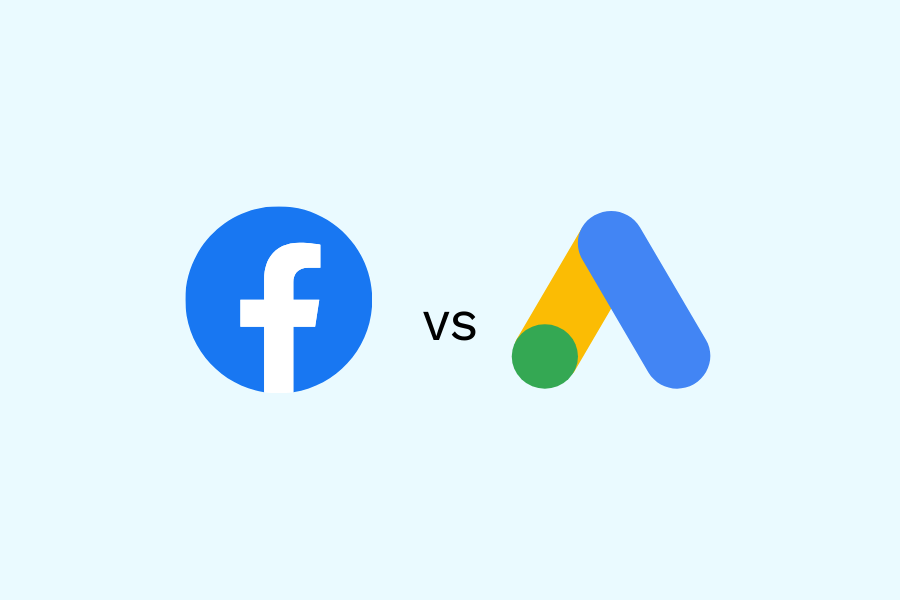
Facebook Ads Ease of Use
Facebook’s Ads Manager can be overwhelming for beginners, with its myriad campaign objectives, ad formats, and targeting options. However, the platform does offer guided ad creation and helpful prompts. Once you get the hang of it, it’s fairly intuitive to use. The key is starting with a simple campaign and iterating as you learn.
Google Ads Ease of Use
Google Ads can also have a steep learning curve, especially when it comes to navigating the various campaign types, bidding strategies, and ad extensions.
However, Google does offer an AI-powered “Smart Campaigns” option for newer advertisers that largely automates the process. You also have the option to list your products at no cost, synchronize products with your YouTube channel, and create Performance Max campaigns.
Like Facebook, it gets easier with practice and there are ample learning resources available.
Facebook Ads Vs Google Ads: When To Use Each
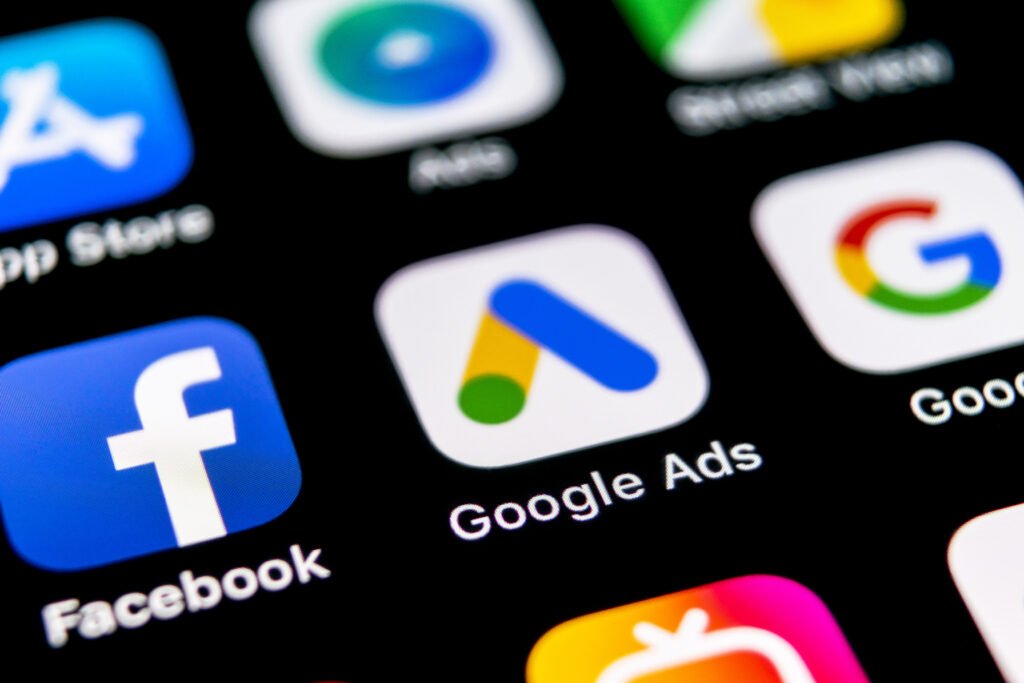
When To Use Facebook Ads
Facebook Ads are best for:
- Increasing brand awareness and engagement
- Generating demand for a new product
- Retargeting past website visitors or customers
- Reaching niche audiences based on specific interests
- Promoting content, events, or social causes
- Driving app installs or leads
When To Use Google Ads
Google Ads are ideal for:
- Capturing high-intent leads actively searching for your products/services
- Promoting products with proven market demand
- Advertising an emergency service or limited-time offer
- Scaling an already profitable campaign
- Remarketing to past visitors as they browse other websites
- Promoting a local business or driving foot traffic to a physical location
Google Ads Vs Facebook Ads: Which Should You Be Using?
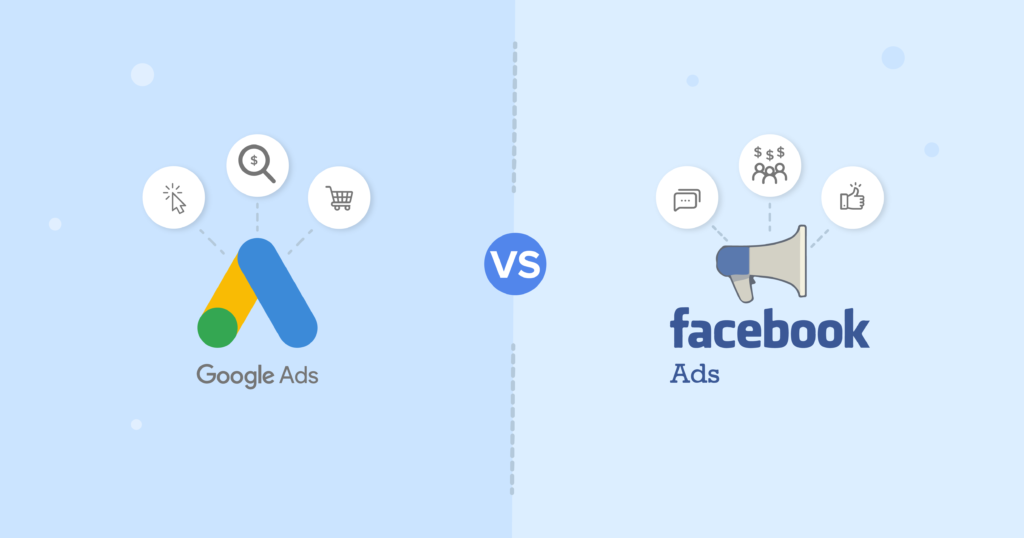
The answer is – ideally, both! Google Ads and Facebook Ads are complementary platforms that work best in tandem. By combining search intent with social engagement, you can guide prospects through the entire marketing funnel.
However, if you have limited resources, the best choice depends on your business model and campaign goals. If you sell an impulse-buy product or want to build brand affinity, start with Facebook. If you provide an in-demand service or product with a high search volume, begin with Google.
As you scale, consider allocating 60-70% of your budget to your primary platform, and 30-40% to the secondary. Over time, you can adjust this ratio based on performance.
Which is Better For Your Business: Facebook or Google Ads?
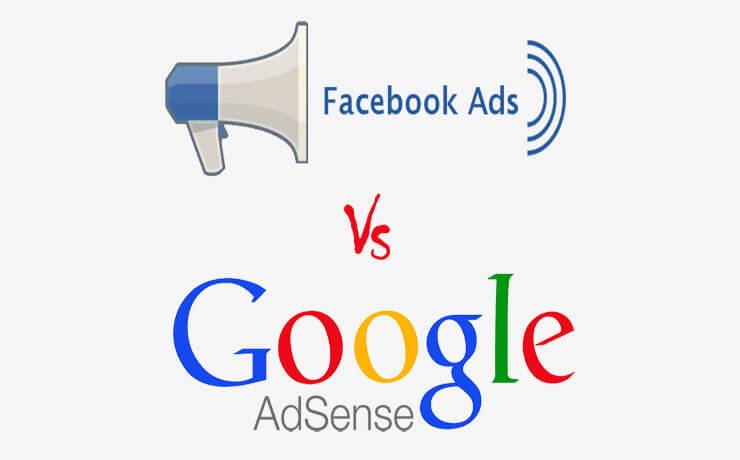
There’s no universally “better” platform – it depends on your unique business, audience, and objectives. B2C companies tend to see great results with Facebook’s visual, engaging ads, while B2B companies often find more qualified leads through Google’s search network.
To illustrate, a trendy D2C fashion brand would likely have more success building brand awareness and driving impulse purchases with Facebook Ads.
On the flip side, a SaaS company selling enterprise software would probably capture more qualified leads by targeting relevant keywords on Google Ads.
The only way to know for certain is to test both platforms and let the data guide your strategy. Start small, define clear KPIs, and give each platform at least 3-6 months to prove its ROI before making judgments.
Tips For Using Google and Facebook Ads Together
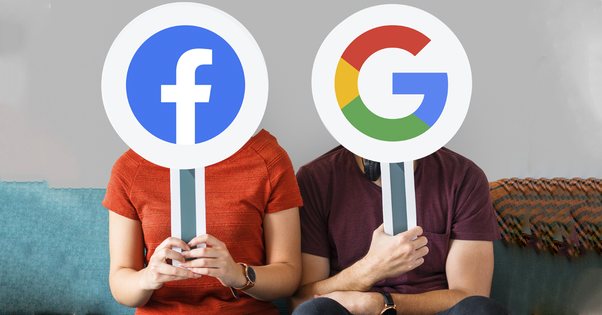
To get the most out of your ad budget, deploy Facebook and Google Ads in unison with these tips:
- Use Facebook for lead generation, then use Google to capture them when they’re ready to buy.
- Upload your email list to create lookalike audiences on Facebook, and customer-match audiences on Google.
- Install the Meta Pixel and Google Analytics on your website to enable remarketing and track cross-platform conversions.
- Sync your ad creative and messaging across both platforms for a cohesive brand experience.
- Monitor your attribution reports to understand how each platform contributes to conversions and optimize accordingly.
FAQ’s:
Is it Better to Advertise on Facebook or Google?
It depends on your goals and target audience. Facebook is best for building brand awareness and engagement, while Google is better for capturing high-intent leads. Ideally, use both in your marketing mix.
Which is Better: Facebook Ads or Google Ads?
Both platforms have strengths and weaknesses. Facebook Ads have superior audience targeting and engaging formats, while Google Ads reach an audience closer to the point of purchase. The best choice depends on your specific business needs.
Which is Cheaper: Google Ads or Facebook Ads?
On average, Facebook Ads have lower costs-per-click and costs-per-action than Google Ads. However, Google Ads may have a better ROI for some businesses, as you’re reaching people actively searching for your offering.
Why is Google Ads More Expensive Than Facebook Ads?
Google Ads are more expensive because the competition is higher and the audience has greater purchase intent. Advertisers are willing to pay more for clicks that are more likely to convert.
How to Allocate Budget Between Facebook and Google Ads?
A common rule of thumb is the 70-30 rule. Allocate 70% of your budget to the platform that’s generating the best results, and 30% to the other. Adjust over time based on performance.
Can Small Businesses Benefit Equally From Facebook and Google Ads?
Yes, both platforms offer opportunities for businesses of all sizes. Facebook Ads are often more affordable and accessible for small budgets. With Google Ads, small businesses can compete by bidding on less competitive, long-tail keywords.
Are Facebook Ads Worth It Anymore?
Yes, if your target audience is active on Facebook’s platforms and you can create compelling ads. Despite rising costs and competition, Facebook’s targeting capabilities make it a valuable tool for many businesses.
Conclusion
As you can see, both Facebook Ads and Google Ads have distinct advantages and use cases. Facebook’s strength lies in its unparalleled audience targeting and engaging ad formats, while Google captures high-intent leads with precision.
The key is identifying your core marketing objectives and target audience and then deploying each platform strategically in your digital marketing mix.
By using Facebook and Google together, you can create a full-funnel marketing engine that builds brand affinity, drives quality leads, and generates revenue.
Of course, this is all easier said than done, which is why many businesses partner with a social media marketing agency like Social Think.
Our team of experts can help you navigate the complexities of Facebook and Google Ads, from audience targeting to creative optimization to attribution modeling.
We’ll work with you to create a custom cross-platform advertising strategy aligned with your goals and provide ongoing analysis and optimization to ensure you’re getting the best possible return on your ad spend.

